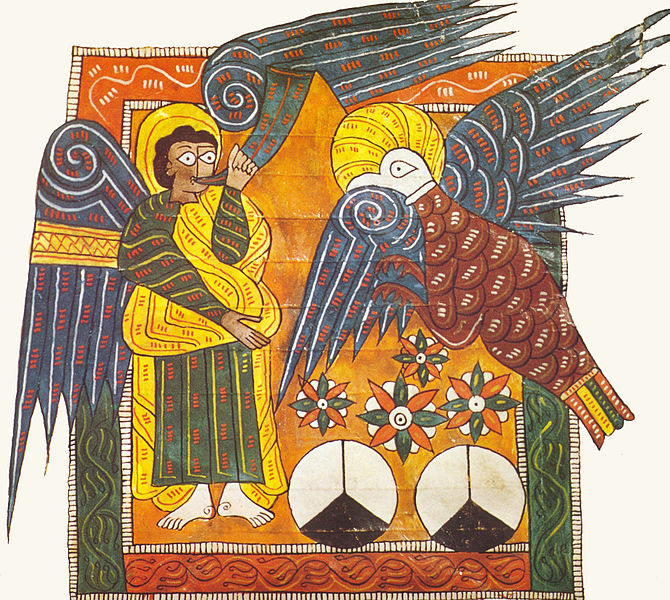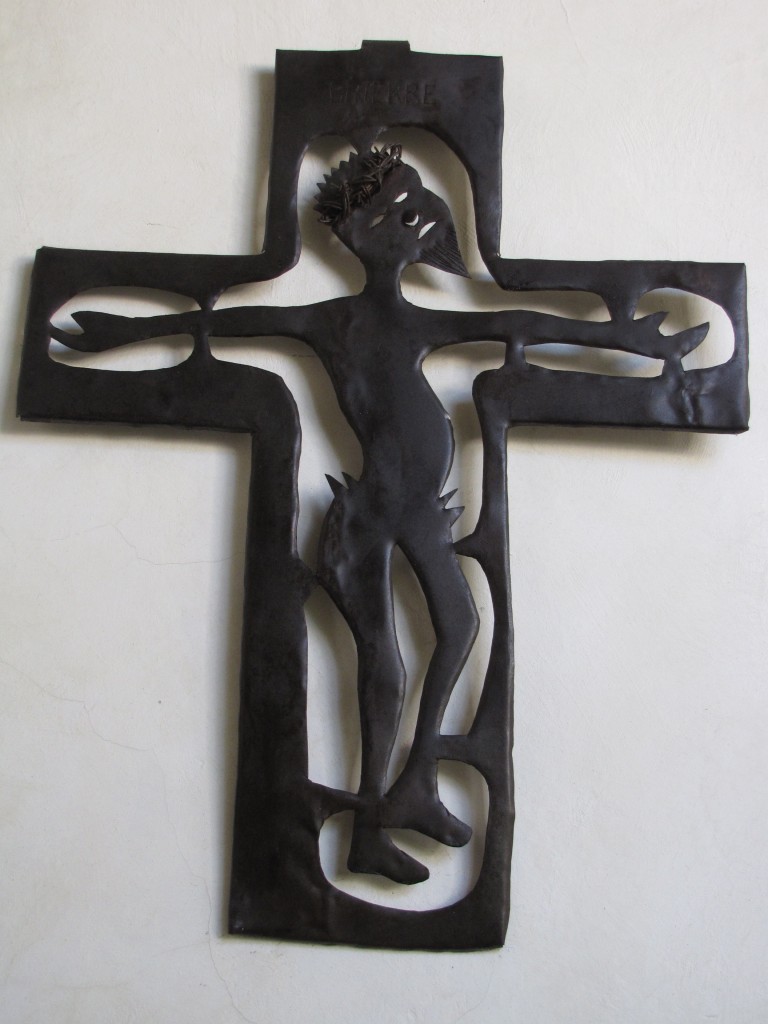
APOCALYPSE VIII: Le quatrieme Ange sonne de la trompette, image at El Escorial (Real Biblioteca de San Lorenzo) uploaded to Wikimedia by Cnb.
Book Review.
What if “The Second Coming” of Jesus, the Messiah, already happened during the span of his own generation, as he himself predicted?
That it has, is the hypothesis of a rigorous, engaging book which deserves consideration by deeply thoughtful Christians, and anyone who enjoys church history. I, for one, have long suspected there is merit to such a project. And the author, Charles S. Meek, has made a superb presentation of this rare position, termed preterism (over-against futurism, and variants of millenialism) which deserves to be more widely pondered. Be prepared to be effectively disabused of scriptural fantasy if you happen to have read any of the popular “Left Behind” series. And clergy might wish to keep an eye on this book, as it seeds their audiences with focused, pertinent questions.
While the title of the book, Christian Hope through Fulfilled Prophesy is rather bland (and the subtitle is rendered in obscurantist grad-school speak: An Exposition of Evangelical Preterism) — the topic is quite edgy, the writing is logical, compelling, and accessible, if a bit repetitious at times; and the author has done a thorough job of defending his thesis with rigorous examination of scripture, and historical material: “…we will show that a strong case can be made that fulfillment of the entire prophecy of Revelation occurred in association with the Jewish-Roman War of AD 66-70 and the destruction of Jerusalem and the temple.”
Normally I avoid books on “End Times” as they are filled with unreasonable speculation and nonsense. This book intrigued me, as it argues from history, illustrating that we are beyond the era of the promised Parousia (second coming of Christ). While I’m unfamiliar with the author, and until now was not aware that anyone was working seriously on this topic, this book seems important, as it effectively refutes much that has damaged Christianity. But perhaps the book needs a new title? Maybe something like:
JESUS RETURNED. Christians Slept:
First-Century Prophetic Fulfillment.
Yes, the book deserves to be repackaged somewhat for the general audience it claims to seek: “this book is written for the informed laymen…” And, if repackaged, I would hope the author would adjust a few things, like inclusive language (instead of referring to theologians as “men” while several times quoting women from that field). Mr. Meek also reveals bias against liberal Christians, yet many of his detractors would seem to be his fellow conservatives. (He appropriately holds the feet of those critics to the fire by diligently focusing on the text.) And we can suspect that he is liberal-minded in the best sense, due to the controversial nature of his thesis — conservatives putatively being more inclined to hew to the status quo regarding such a topic. But his bias against “liberals” is often vague, unwarranted, and mostly unfortunate.
His utilization of pertinent quotes shows us that he has read widely — Tolstoy, Ratzinger, Augustine, Eusebius. And his end notes are superb in marshaling the history and resources from his research on eschatology regarding his thesis. He also takes a good shot at careerism among the clergy by formulating questions for parishioners to ask their pastors regarding scriptural positions in tension with an expected second coming of Jesus. (Heads up. This author is not afraid to stir the pot!) I’m reminded of a quote from CS Pierce, saying those who love truth are destined to agree – which would seem to characterize the spirit of his effort. How refreshing!
We are now able to dispense with waiting for search lights to converge on the Temple Mount, scanning the skies for a bearded guy on a white horse, descending in a cloud. The prophetic promises have been fulfilled, if we are able to agree with the author. Said promises are carefully detailed and examined in this edifying book.




